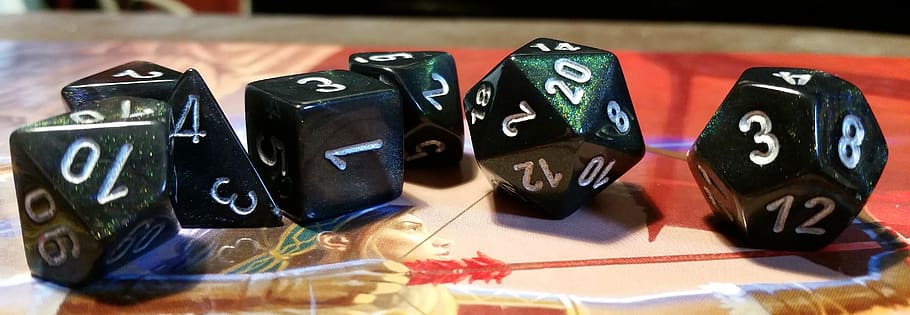
Of the questionable good things to come out of the pandemic was the meteoric rise of D&D as a way to connect with your friends and still have fun. Zoom calls and Discord allowed people to run and play in games from the comfort of their own homes, and gave rise to many digital tools to expand one’s ability to play the game remotely. This also helped grow the game’s popularity.
Hasbro has sunk a lot of money into their upcoming virtual tabletop system as a result, and are similarly banking on this largely-digital format for the originally tabletop RPG. They’ve even boasted about creating AI dungeon masters to craft adventures.
This brings us to an interesting question: At what point are you transitioning from playing a game with your friends, to playing a video game with your friends?
I’m not knocking online RPG’s, though I have enough ammunition to do so if I wanted to drag Bethesda through the mud. Baldur’s Gate certainly shows us that the MMORPG (Massive Multiplayer Online) platform is extremely profitable. Sometimes a little too profitable for the sake of the players with the silly micro-transactions and the ‘pay to win’ model.
Again, not a road we need to go down now, but it’s helpful to remember that this type of gaming has existed for a long time, and runs in almost every genre you can imagine — Fantasy, Sci-Fi, whatever you call Minecraft, etc.
The reason I bring it up is because there’s a line between playing an MMORPG, and playing a tabletop (TTRPG).
In an MMO, everything is scripted ahead of time. You have branching paths, but even when this is done well, there’s still only a certain set number of outcomes you can reach. Using AI to DM may get around this problem, to a point, but AI is not really intelligent. It just takes information that’s been fed to it, randomizes, and basically pulls out a predictive-text based response. It’s advanced predictive text, but at the end of the day, it’s a computer. It can only use the data it’s been fed. The more it does something with its data set, the more it will lean towards the familiar pattern. It’s just going to be another branching-path adventure with a few details changed. Even if you and your friends are rolling physical dice and using paper sheets and feeding the AI the results, you’re really just adding extra steps to your own gaming experience, which is practically an MMO, especially if you’re on a digital tabletop platform.
And it probably won’t surprise you to learn that a majority of the recent layoffs at Wizard’s were individuals who worked on the physical books. The individuals they’re looking to hire are those with digital publishing experience. It seems like Hasbro is all-in on moving to a totally digital D&D experience. Not to say there won’t still be books for the physical world, but they’re seriously de-emphasizing it and looking to push for digital-focused gaming.
At that point, the big separation between MMO and TT, is an extremely thin line. If an AI is running the game, then you’re basically playing a video game.
I’m not going to act high and mighty about this, if that’s your preference, that’s absolutely fine. I do remote gaming with my group, and we often use a digital tabletop for battle maps. But the game itself comes from the imagination of the person running it, not from data fed into an AI. All the advanced 3D graphics in the world cannot replace that.
When we’re at a pause in gaming or just sitting around, one of the things we do is tell stories, stories of past games, really amazing, epic, fun stories of great wins and hilarious losses.
When we talk about our video game experiences, we generally talk about stats, build optimizations, how to win a boss fight that’s oddly difficult, or laugh about the game glitches.
There’s a gulf of difference there. In a virtual scenario with a script, there’s not as much room for choice. No matter how good the AI, its limitations will not allow the kind of infamous shenanigans players at a table get up to. There may be no option to bribe a town guard, fail your persuasion check, and then have to stage a prison break in the dead of night with the wildest plan you can come up with because you’re meeting with the Oracle at dawn and can’t miss that event.
AI can’t do that the same way a living human who is now going to improv the unplanned prison break that sneaks your friend out by hiding them under a pile of horse dung in a wagon, and they’re making checks to not wretch and give up the game. AI can’t build that combination of silly and tense. If it doesn’t have something like that programmed in, the adventure doesn’t happen.
So at the end of the day, it’s a video game. Maybe an advanced one, but a video game nonetheless.
The physical tabletop with dice, character sheets, a stressed out DM, and a table of people hanging on their every word is not something a computer can reproduce.
The true heart and soul of the game is always going to be in the social interaction, the roleplaying mentioned earlier. A video game has limited dialogue options and responses. AI would have the same. But a live person can always surprise you, and often will.
And nothing beats the memories you make with a real group of real friends sitting around a table and laughing for 45 minutes straight at the consequence for flubbing that last roll.